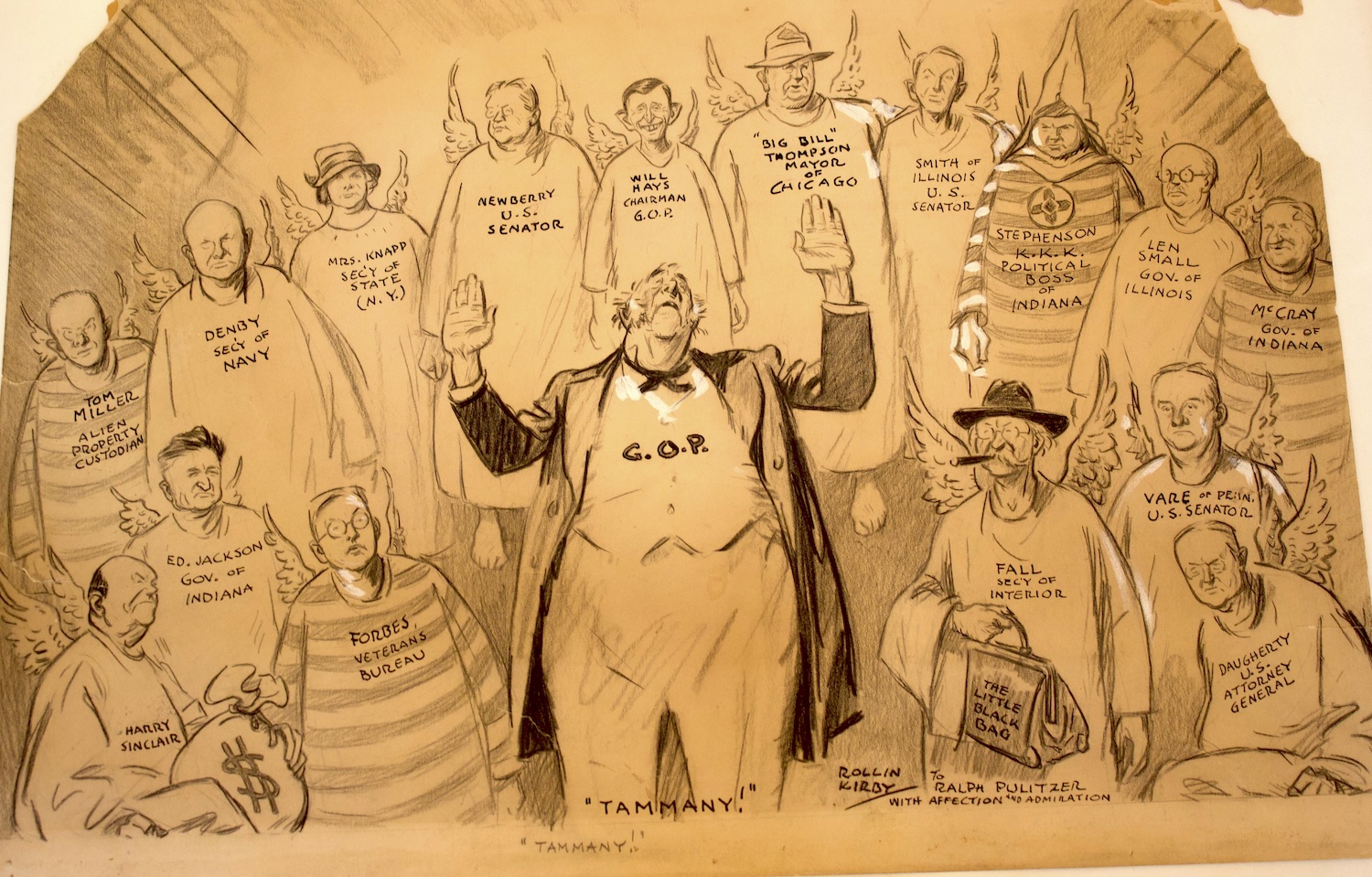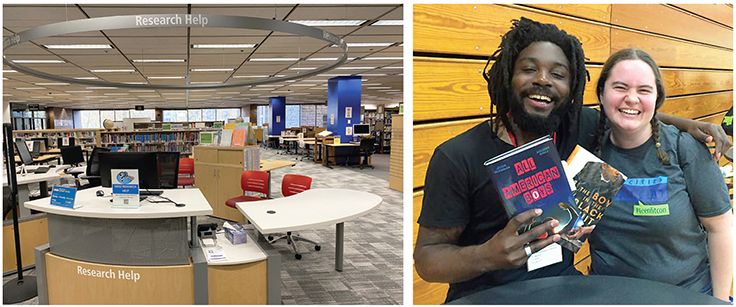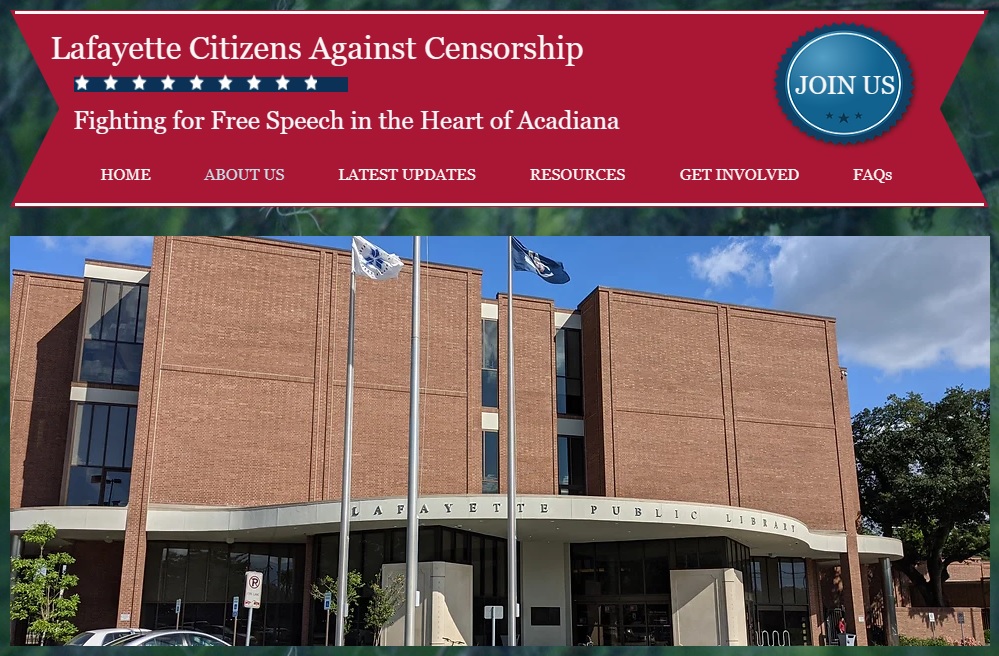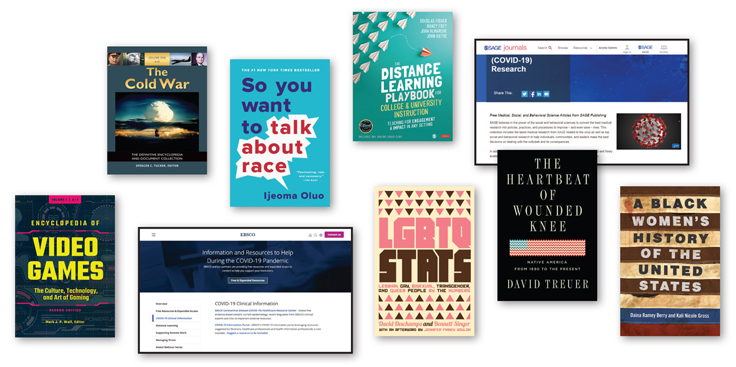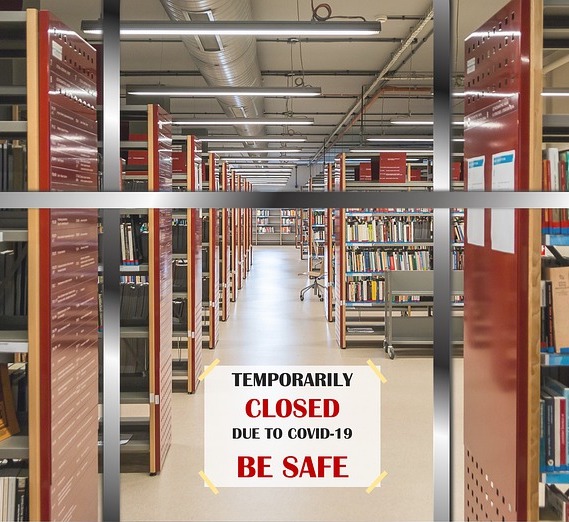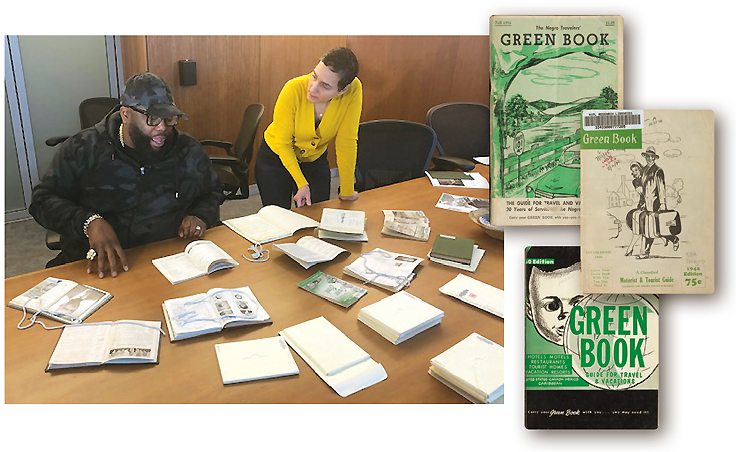April Witteveen
29 Articles
From:
To:
Advocacy Efforts Impact Louisiana Legislative Session
It has been a busy legislative session in the Louisiana House, with several bills poised to impact libraries and library workers halted at various points, while others have been approved and moved on to the Senate. As they proliferate, grassroots library advocacy organizations are stepping up to combat them.
At UCLA, Political Cartoon Collection Gift Includes Provisions for Maintenance, Instruction
From the first known caricature of Abraham Lincoln to a Pulitzer Prize–winning cartoon satirizing the Tammany Hall political machine, the Michael and Susan Kahn Political Cartoon Collection, now at UCLA, contains thousands of individual images, periodicals, books, and ephemera dating back to the late 17th century.
Amidst Federal Lawsuit, Texas “Book Rating” Law Set to Take Effect this Week
All eyes are on Texas as HB 900, the state’s controversial new book rating law, is slated to take effect September 1, 2023. Signed by Governor Greg Abbott on June 12, the legislation aims to prevent the sale of books deemed “sexually explicit” or “sexually relevant” to school districts by requiring book publishers and vendors to rate individual titles based on content.
Small Strategies: Wearing Many Hats in Small Academic Libraries
Reference librarians in small academic libraries do a little of everything, from seeing synergies to creating workarounds for staff, collection, facilities, and budget gaps.
Lafayette Public Library Board President Headed to Court over Free Speech Concerns
Two community members are suing Louisiana’s Lafayette Consolidated Government, the municipal body that oversees the Lafayette Public Library (LPL), for denying the right to free speech in public board meetings. Lynette Mejía and Melanie Brevis, community members and patrons of LPL, are co-plaintiffs in the suit, which also names Board of Control President Robert Judge. According to local newspaper The Acadiana Advocate, the lawsuit alleges the violation of Mejía’s and Brevis’s First Amendment rights to free speech as well as their 14th Amendment rights, along with violations of the Louisiana Open Meetings Law.
Directors Under Attack
Library directors often bear the brunt of intellectual freedom challenges from community members—even from their own boards—and some have chosen to leave.
Reference Publishers, Academic Librarians on Keeping Resources Current and Comprehensive
Publishers and librarians offer their perspective on what makes for a great reference collection, and how to maintain it to serve all information seekers.
Libraries Roll Back In-Person Services Due to COVID-19 Contact, Local Resurgence
No matter how conscientiously libraries stick to protocol, many have had to roll back reopening operations recently as employees fall ill or report positive COVID-19 tests or contact with others who test positive—or in some cases, as case counts in their areas rise or patrons refuse to comply with masking or social distancing regulations.
African American Archives: Preserving History and Increasing Access
Several new initiatives will expand African American experiences beyond the archives and make them publicly available.
ALREADY A SUBSCRIBER? LOG IN
We are currently offering this content for free. Sign up now to activate your personal profile, where you can save articles for future viewing


